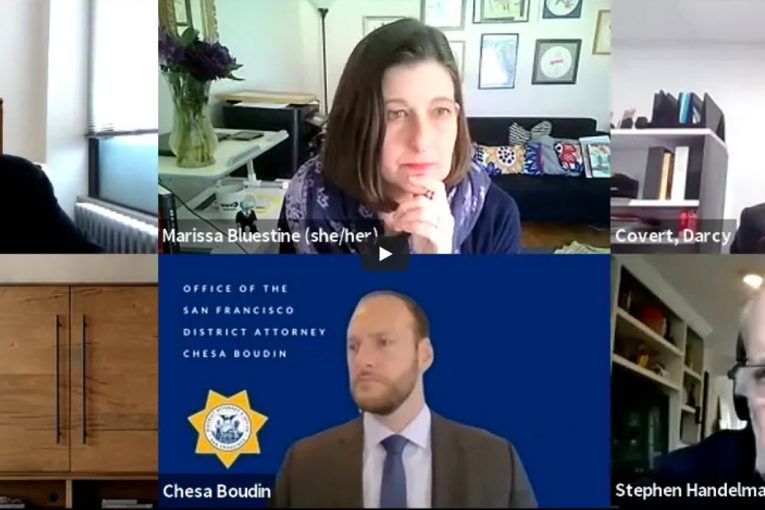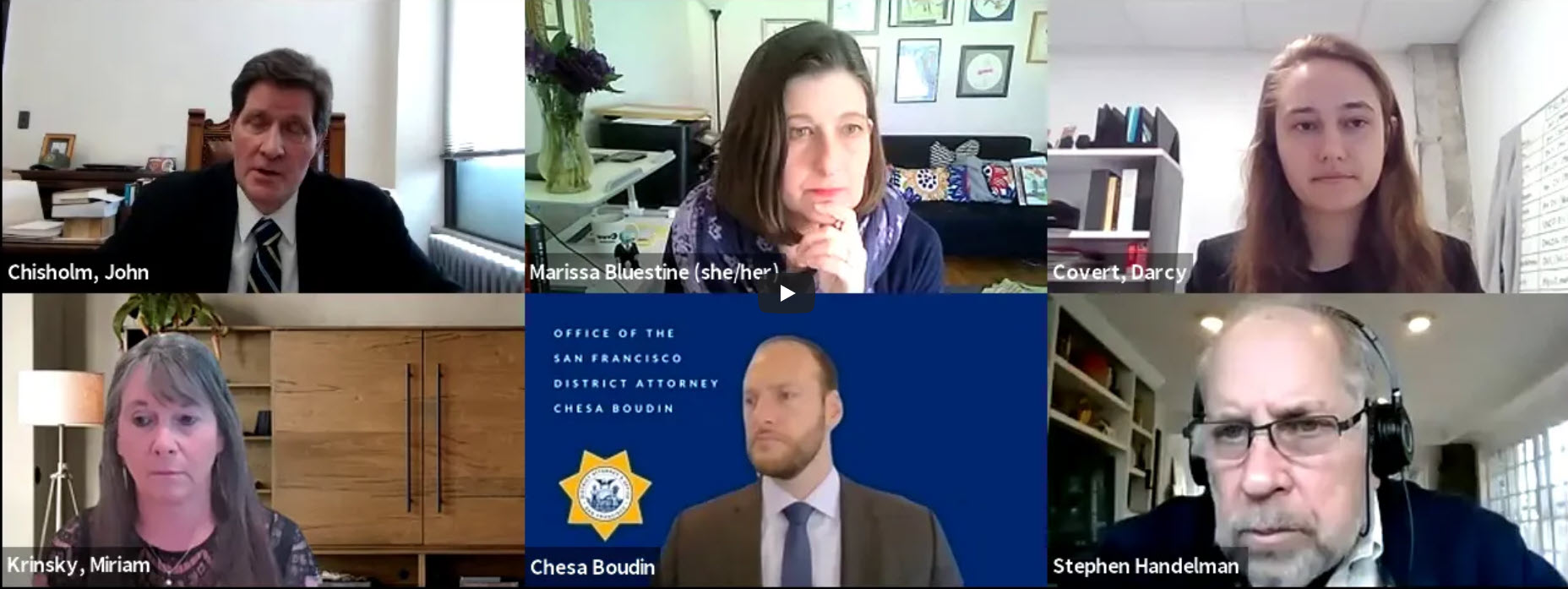
 By Mia Machado
By Mia Machado
SAN FRANCISCO, CA – SF District Attorney Chesa Boudin discussed various obstacles he must overcome – outside and inside his own District Attorney Office – as a progressive prosecutor committed to restorative justice at the 16th annual John Jay/Harry Frank Guggenheim Symposium on Violence in America, which ended Friday.
Boudin, along with other reform-minded attorneys, spoke at the panel exploring the prospects for the progressive prosecutor movement.
The SF District Attorney is just one of many reform-minded prosecutors that have begun to gain traction across the country, prioritizing policies that work to end mass incarceration, while providing treatment and support “for those whose crimes stem from underlying struggles.”
The progressive DA movement first caught media attention in 2016, when a handful of self-described reformist prosecutors defeated long-standing incumbent district attorneys in cities such as Chicago, Philadelphia and Boston.
Although these attorneys only represent a small percentage of the nation’s 2,400 prosecutors, the jurisdictions in which they have emerged victorious account for a large portion of the nation’s jail population, explained Miriam Krinsky, founder of Fair and Just Prosecution and fellow speaker at the symposium.
Despite momentum the progressive prosecutors movement has garnered in recent years, there has been no shortage of criticism from opposition voiced by legislators, police unions, judges and even other DAs, he said.
Chesa Boudin, who has been under fire for his progressive policies since elected in 2020, told the panel that the only way to counter opposition is to “let the data speak for itself.”
“There are so many people in police unions and conservative TV talk shows who would swear to you that if you reduce the jail populations (and) the prison populations, crime will surge,” he said. “They would have you believe that people who are incarcerated are all dangerous and violent, and if we don’t have them behind bars, they will harm us.”
In contradiction to these claims, DA Boudin pointed out that since San Francisco began reducing the number of people sent to jail by about 40 percent, “we saw a virtuous cycle where crime rates also fell…because police were bringing fewer people to jail, it was easier for us to focus resources on finding safe re-entry for those who were still there.”
However, progressive prosecutors like Boudin are not only the targets of judges, police unions and legislators, who claim they are putting public safety at risk―but many attorneys from within their own DA ranks.
“There are people in our own offices who believe they are doing good work, who are foregoing opportunities to make more money by working for a big law firm, for whom it’s difficult to hear that what they’ve been doing for five years or 10 years is actually causing more harm than it’s helping,” DA Boudin explained.
“They don’t want to believe that an outsider like me, a (former) career public defender, knows better than they do how to be a prosecutor that helps promote public safety,” he stated.
The efforts of prosecutors like DA Boudin face further scrutiny from some reform-minded public defenders― such as Seattle deputy public defender Darcy Covert― who argue that placing an emphasis on the role of prosecutors as change agents deflects from the goal of rethinking and restructuring how the justice system currently operates.
DPD Covert, also present at the symposium, expressed her skepticism about whether the progressive movement is capable of achieving what it wants.
“It sets its sights on big change, systemic change, reducing or eliminating mass incarceration…but it’s premised on prosecutorial power, on the idea that if you put good people in these offices, they will use that power for good,” she argued.
Covert asserted that “prosecutors who are truly committed to making meaningful and substantive changes in the system should support the reduction of power and resources from their offices, and build up power and resources elsewhere.
DA Boudin responded to her comments, explaining that elected prosecutors are often hampered by the political realities of their jurisdictions.
“We are dealing with a world in which, if I get out of the way and stop prosecuting the drug cases that I know are ineffective as a response to the serious challenges we have with overdose fatalities, the money will not be given to public health services or harm reduction or safe consumption sites,” Boudin said.
“As a practical matter, the U.S. Attorney will start prosecuting people for the same exact cases, and the U.S. Attorney cooperates with ICE, and these people get deported,” he countered. “I have defense attorneys who practice in federal court calling me and begging me not to stop prosecuting drug cases.”
DA Boudin said a greater hurdle was finding an effective way to respond both to those who commit acts of violence and to those who feel under attack. Simply punishing people does not satisfy the aims of justice― to hold people accountable for their crimes, he noted.
DA Boudin cited his parents, Katherine and David, as an example. Both were members of the Weather Underground and convicted and imprisoned for their role in a 1981 robbery that left two police officers and a security guard dead.
“When one of the victims of my father’s crime went to visit him, in his prison, when he came face to face with her and understood from seeing her humanity, and hearing her story, the harms that his crime caused, it did more for his understanding and for his compassion, and for his remorse, than any number of decades in a cage could do,” shared Boudin.
 Mia Machado is a junior at UC Davis, currently majoring in political science-public service and minoring in Luso-brazilian studies. She is originally from Berkeley, California
Mia Machado is a junior at UC Davis, currently majoring in political science-public service and minoring in Luso-brazilian studies. She is originally from Berkeley, California
To sign up for our new newsletter – Everyday Injustice – https://tinyurl.com/yyultcf9
Support our work – to become a sustaining at $5 – $10- $25 per month hit the link: